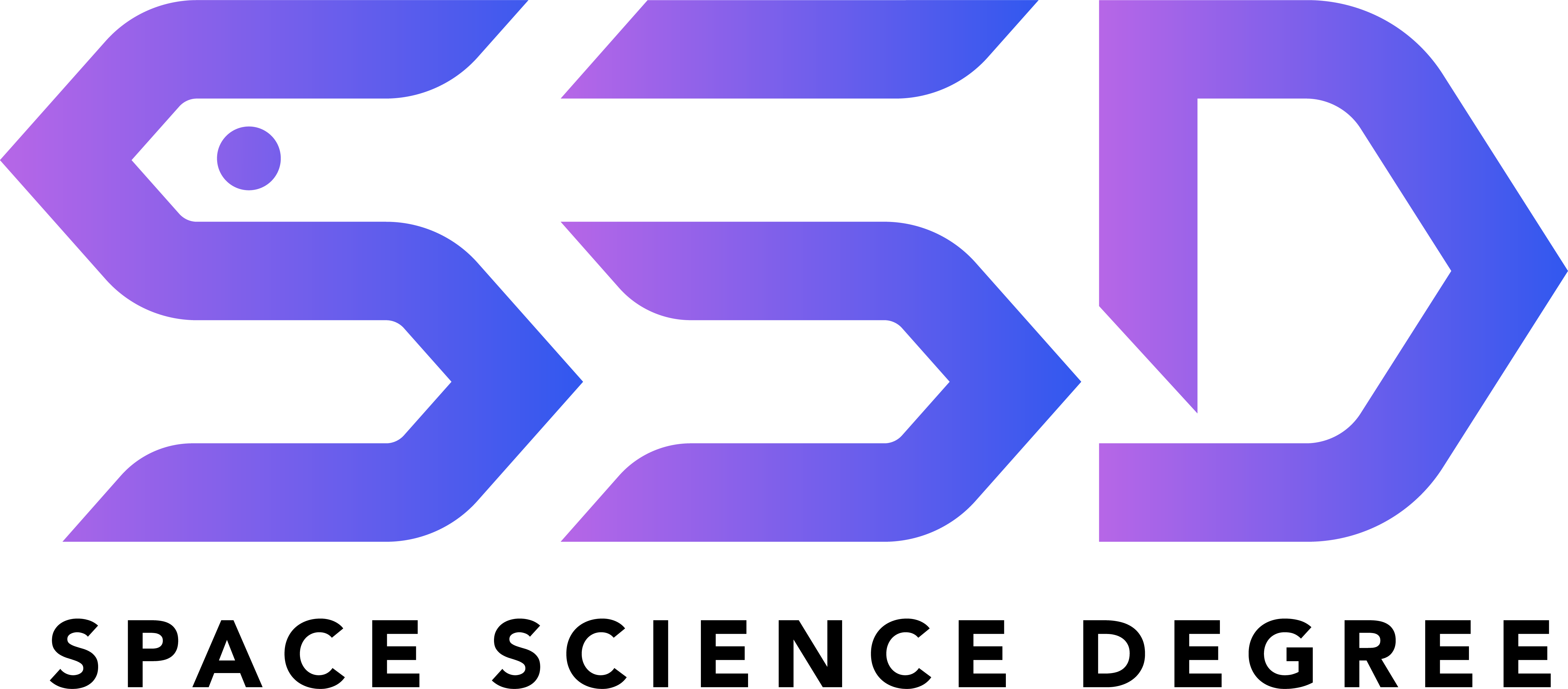
The commercial space industry is experiencing unprecedented growth in 2025, creating thousands of new career opportunities for space science graduates. With companies like SpaceX, Blue Origin, Rocket Lab, and dozens of emerging startups reshaping the industry, there's never been a better time to launch your career in commercial space.
The Commercial Space Boom
The global space economy is projected to reach $1 trillion by 2040, with the commercial sector driving most of this growth. Unlike traditional government-led space programs, commercial companies are moving fast, innovating rapidly, and offering competitive salaries to attract top talent.
Key Growth Areas:
Satellite Technology: Companies like Starlink, OneWeb, and Amazon's Project Kuiper are deploying massive satellite constellations Space Tourism: Virgin Galactic, Blue Origin, and SpaceX are making space accessible to civilians Launch Services: Reusable rockets have dramatically reduced launch costs Space Manufacturing: Zero-gravity manufacturing is becoming commercially viable Asteroid Mining: Companies are preparing for the next frontier of resource extraction
Top Commercial Space Companies to Watch
Established Leaders
SpaceX: The industry pioneer continues to dominate with Falcon 9, Starship, and Starlink programs. They're actively hiring engineers, mission specialists, and operations staff.
Blue Origin: Jeff Bezos's space company is ramping up for lunar missions and space tourism, offering opportunities in propulsion, life support systems, and mission planning.
Virgin Galactic: Focusing on suborbital space tourism with expanding ground operations and flight crews.
Emerging Players
Rocket Lab: Specializing in small satellite launches with growing international presence Relativity Space: 3D-printing entire rockets and disrupting traditional manufacturing Planet Labs: Earth observation satellites providing valuable data services Axiom Space: Building the first commercial space station
Career Paths in Commercial Space
Engineering Roles
Aerospace Engineers: Design spacecraft, propulsion systems, and life support equipment
- Salary Range: $85,000 - $180,000
- Education: Bachelor's in Aerospace Engineering or related field
- Growth: 8% annually through 2032
Software Engineers: Develop flight control systems, satellite software, and ground operations tools
- Salary Range: $95,000 - $200,000
- Skills Needed: Python, C++, real-time systems, cybersecurity
- High Demand Areas: Autonomous systems, AI/ML for space applications
Systems Engineers: Integrate complex spacecraft systems and ensure mission success
- Salary Range: $90,000 - $170,000
- Background: Engineering degree with systems thinking experience
Operations and Mission Roles
Mission Operations Specialists: Control satellites and spacecraft from ground stations
- Salary Range: $70,000 - $140,000
- Schedule: Often involves shift work and 24/7 operations
- Training: Company-provided with strong technical background
Launch Operations: Coordinate rocket launches and ensure safety protocols
- Location: Cape Canaveral, Vandenberg, and emerging commercial spaceports
- Growth: Rapid expansion as launch frequency increases
Flight Controllers: Monitor spacecraft health and make critical mission decisions
- Background: Aerospace or related engineering degree
- Skills: Quick decision-making, stress management, technical expertise
Business and Support Functions
Business Development: Identify new markets and secure commercial contracts
- Salary Range: $80,000 - $160,000 + commission
- Background: MBA or business degree with technical understanding
Regulatory Affairs: Navigate complex space law and international regulations
- Education: Law degree or policy background with space industry knowledge
- Growth Area: Increasing importance as industry matures
Supply Chain Management: Coordinate complex manufacturing and launch logistics
- Skills: Project management, vendor relations, quality control
Skills in High Demand
Technical Skills
- Programming Languages: Python, C++, MATLAB, Rust
- Simulation Software: STK (Systems Tool Kit), GMAT, Simulink
- CAD/Engineering: SolidWorks, ANSYS, finite element analysis
- Data Analysis: Machine learning, data visualization, statistical analysis
- Cybersecurity: Protecting critical space infrastructure
Soft Skills
- Problem-Solving: Space missions leave little room for error
- Teamwork: Complex projects require seamless collaboration
- Adaptability: Fast-moving industry with rapid technological changes
- Communication: Explaining complex technical concepts to diverse audiences
- Stress Management: High-pressure environment with mission-critical decisions
Educational Pathways
Traditional Degrees
Aerospace Engineering: Still the gold standard for spacecraft design roles Mechanical Engineering: Valuable for propulsion and structural systems Electrical Engineering: Essential for satellites and electronic systems Computer Science: Growing importance in autonomous systems and AI
Emerging Specializations
Space Systems Engineering: Specialized programs at schools like USC and CU Boulder Astrobiology: For life detection missions and planetary science Space Policy: Understanding the regulatory landscape Commercial Space Business: MBA programs with space industry focus
Alternative Paths
Military Experience: Many companies value military aerospace experience NASA Background: Traditional space experience translates well to commercial sector Tech Industry: Software skills from Silicon Valley are highly transferable Manufacturing: Traditional manufacturing expertise applies to space production
Getting Started: Action Steps
1. Build Relevant Experience
- Internships: Apply to NASA, SpaceX, Blue Origin, and other companies
- University Projects: Join rocketry clubs, CubeSat programs, and research labs
- Competitions: Participate in NASA competitions and industry challenges
- Personal Projects: Build rockets, design satellites, or create space-related software
2. Network in the Industry
- Conferences: Space Symposium, SmallSat Conference, Commercial Space Conference
- Professional Organizations: AIAA, Space Foundation, Commercial Spaceflight Federation
- Online Communities: SpaceX Reddit, LinkedIn space industry groups
- Local Chapters: Many cities have space industry meetup groups
3. Stay Current with Industry Trends
- News Sources: SpaceNews, SpaceflightNow, SpacePolicyOnline
- Podcasts: Main Engine Cut Off, Space Policy Podcast, Space Biz
- Social Media: Follow industry leaders and companies on Twitter/X and LinkedIn
- Technical Papers: Read IEEE Aerospace and AIAA publications
4. Develop a Portfolio
- GitHub: Showcase space-related coding projects
- Research Papers: Publish in student conferences or journals
- Certifications: Consider relevant industry certifications
- Documentation: Write about your projects and learning journey
Salary Expectations and Benefits
Commercial space companies often offer competitive packages that can exceed traditional aerospace:
Base Salaries by Experience Level
Entry Level (0-2 years): $70,000 - $95,000
Mid-Level (3-7 years): $95,000 - $140,000
Senior Level (8+ years): $140,000 - $200,000+
Principal/Staff Level: $180,000 - $250,000+
Additional Benefits
- Stock Options: Potential for significant equity upside
- Bonuses: Performance and mission success bonuses
- Flexible Work: Many roles offer remote or hybrid options
- Professional Development: Conference attendance and continued education
- Unique Perks: Launch viewing parties, facility tours, and industry networking
Challenges and Considerations
Industry Realities
High Pressure: Mission failures can be career-defining Long Hours: Critical milestones often require extensive overtime Job Security: Startups can be volatile; established companies offer more stability Location Constraints: Many positions require relocation to specific areas
Skill Requirements
Continuous Learning: Technology evolves rapidly Security Clearances: Some positions require government clearances Physical Demands: Some roles involve travel or unusual schedules Precision Requirements: Zero tolerance for errors in many positions
The Future Outlook
The commercial space industry shows no signs of slowing down. Key trends driving continued growth include:
Space Tourism Expansion: More companies entering the market Lunar Economy: Moon-based operations becoming reality Mars Preparation: Long-term planning for human Mars missions Space Manufacturing: Zero-gravity production facilities Asteroid Mining: Resource extraction from space objects Space Solar Power: Orbital power generation systems
Conclusion
The commercial space industry in 2025 offers unprecedented opportunities for space science graduates and career changers alike. With competitive salaries, cutting-edge technology, and the chance to literally reach for the stars, it's an exciting time to enter this field.
Whether you're a recent graduate or an experienced professional looking to transition into space, the key is to start building relevant skills, networking within the industry, and staying current with rapid technological developments.
The next decade will see humans return to the Moon, establish permanent lunar bases, and take the first steps toward Mars. By joining the commercial space industry now, you can be part of humanity's greatest adventure while building a rewarding and lucrative career.
Ready to launch your space career? Start by exploring degree programs in aerospace engineering, space systems, or related fields. The stars are no longer the limit – they're the destination.
Looking for space science degree programs to start your journey? Compare top-rated programs from accredited universities and find the perfect fit for your career goals.


